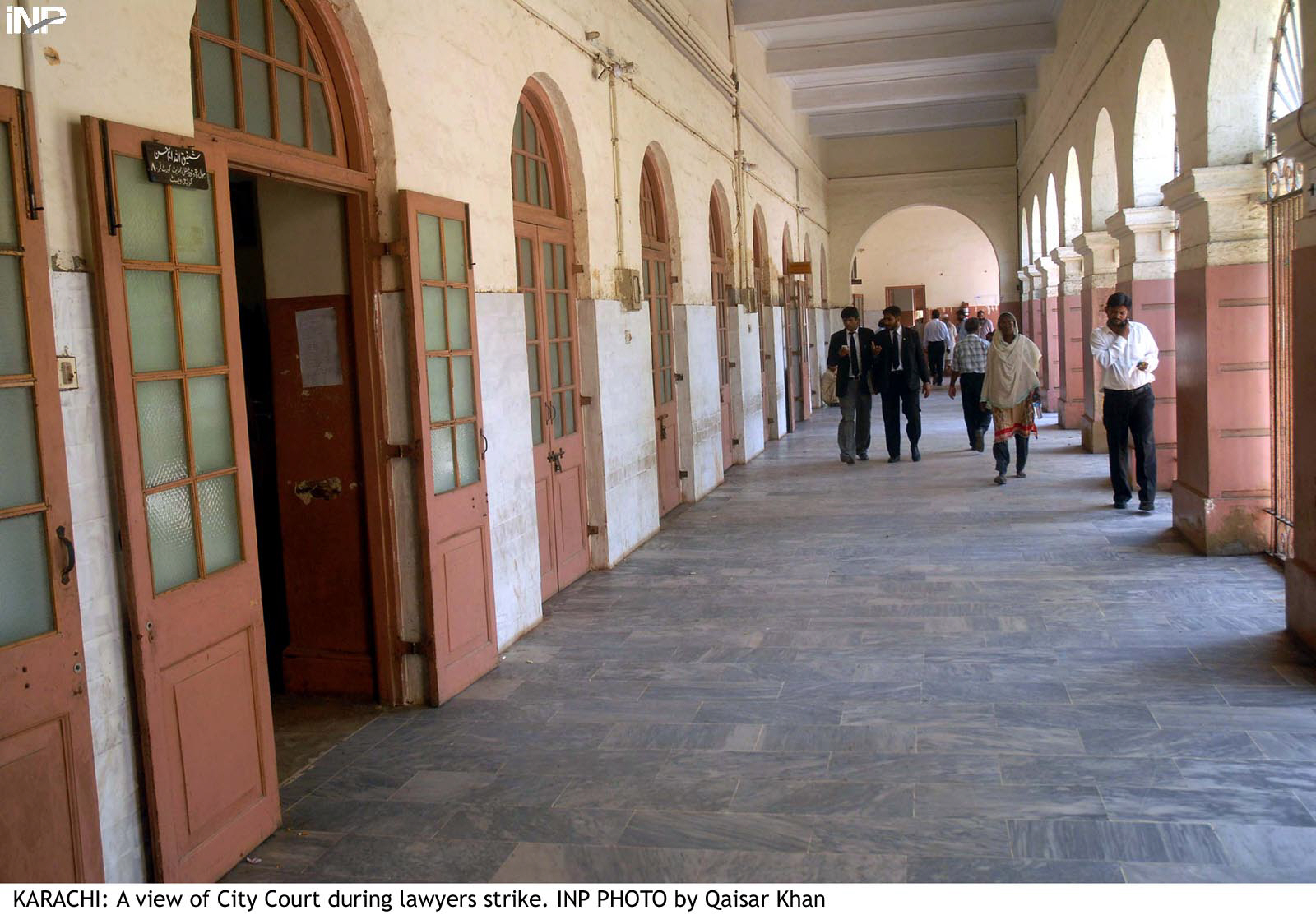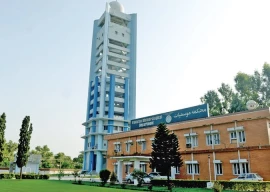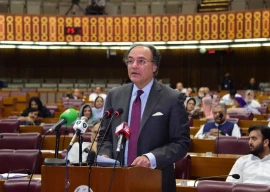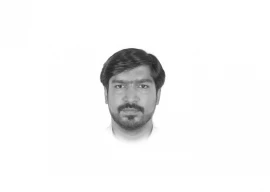
An aged man calmly sat waiting for the judges to enter the packed courtroom to take up the cases on Wednesday. Suddenly, however, he started shouting, his face red and his voice shaking. The court clerk had just announced that legal work was suspended for the day.
“Today’s cases have been adjourned to mourn the death of a senior Supreme Court (SC) judge,” court reader Gul Hassan told the dozens of litigants, who left disappointed and angry. Identical, abrupt announcements were made in other courts across the city and the province.
The two judges, who had arrived for the hearings of over 60 cases fixed for the day, sat in their chamber where they too were informed that Sindh High Court (SHC) chief justice Maqbool Baqar had, on the request of the Sindh High Court Bar Association (SHCBA), suspended legal proceedings as a sign of respect for former SC CJ Naseem Hassan Shah, who passed away in Lahore on Saturday.
A total of 767 cases, including constitutional petitions, civil and criminal appeals and bail applications, fixed in various courts at the SHC’s principal seat at Karachi had to be sent back without hearing.
“This is how we pay our respects to deceased members of the judiciary, be they lawyers or judges,” explained SHCBA president Shoukat S Zuberi.
There are, however, other occasions when legal proceedings come to a halt and litigants suffer. This week, official work was done on only two days.
On Monday, the legal fraternity boycotted proceedings to protest the killing of 62 people in a bomb blast during Friday prayers at a Shikarpur imambargah. On Wednesday, they mourned the death of Justice (retired) Shah. Thursday was a public holiday on account of Kashmir Day.
The hearings for thousands of cases are put off during strikes at the superior and subordinate judiciary in the city. And it takes weeks to get the next date of hearing.
“When a case cannot be heard due to strikes or boycotts, its turn comes after at least four weeks,” a clerk at the Roster Branch told The Express Tribune.
For their part, the lawyers too have their justifications.
“Tell me what we can do except call for strikes and boycott proceedings to protest the killings of our colleagues,” said Zuberi. “When the government does not take action, this is the only way left for us to raise our voices.”
In January, the lawyers boycotted proceedings on three different days - to protest the killing of a colleague on January 3, the publication of a controversial magazine cover on January 19 and the establishment of military courts on January 29.
The Sindh Bar Council, which is the top regulatory body of the province’s legal fraternity, seems little bothered by the frequency of these protests and boycotts.
“When we request judges to suspend legal work, we also ask them to continue hearing urgent matters inside their chambers,” said council vice-chairperson Abdul Sattar Kazi, adding that he did not see the need to adopt any other mode of protest.
The SHCBA president, however, gave assurances that his community would soon consider alternative ways to voice their demands without depriving litigants of their right to swift justice.
“We are going to call a meeting of the representatives of all of Sindh’s bar associations to discuss the issue and choose another way to register our protests in the coming days,” he told The Express Tribune. “I am not sure what we could do but we will discuss the matter.”
Published in The Express Tribune, February 6th, 2015.
















1725434334-0/Untitled-design-(35)1725434334-0-270x192.webp)






COMMENTS
Comments are moderated and generally will be posted if they are on-topic and not abusive.
For more information, please see our Comments FAQ